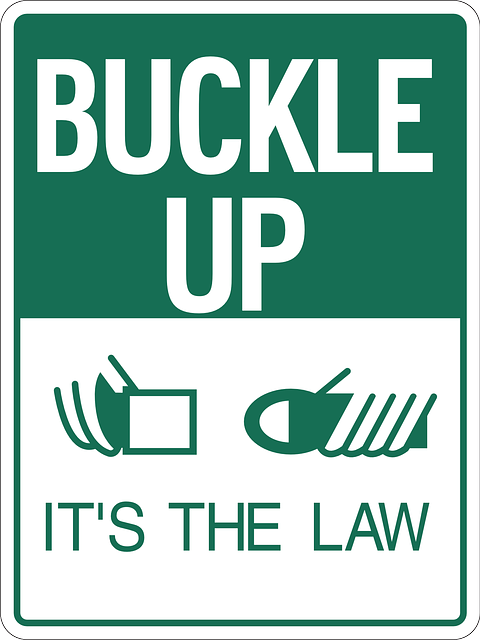Financial fraud remains a persistent threat driven by sophisticated tactics like identity theft and investment scams. Early detection is crucial, relying on recognizing red flags such as abrupt banking changes and suspicious communications. Advanced data analytics, integrated with robust fraud monitoring systems, transforms detection, particularly in complex cases like defamation, by identifying patterns indicative of fraudulent activities. Defamation case outcomes and settlements play a significant role in shaping fraud prevention strategies, protecting individuals from baseless accusations and penalizing offenders. Holistic approaches involving IT, security, and legal teams facilitate early detection and successful outcomes, fostering an environment where prevention takes precedence over pursuit.
Financial fraud remains a significant global concern, with sophisticated schemes evolving constantly. This article explores critical aspects of detecting and preventing financial fraud, from understanding common schemes and data analytics’ role to legal considerations and industry best practices. We delve into the impact of defamation case outcomes and settlements on fraud prevention, supported by real-world case studies demonstrating successful fraud detection strategies. Stay informed to protect your finances in today’s digital landscape.
- Understanding Financial Fraud: Common Schemes and Red Flags
- The Role of Data Analytics in Advanced Fraud Detection
- Legal Aspects: Defamation Case Outcomes and Their Impact on Fraud Prevention
- Industry Best Practices for Implementing Fraud Monitoring Systems
- Case Studies: Successful Fraud Detection Strategies and Their Results
Understanding Financial Fraud: Common Schemes and Red Flags

Financial fraud is a complex and ever-evolving challenge, with con artists devising sophisticated schemes to exploit individuals and organizations. Understanding the common tactics used in financial fraud is crucial for early detection and prevention. One of the most prevalent forms is identity theft, where criminals steal personal information to impersonate others, leading to unauthorized transactions and significant financial losses. Another scheme involves investment scams, where fraudulent promises of high returns lure unsuspecting investors into risky and illegal ventures.
Red flags that may indicate financial fraud include sudden changes in banking patterns, suspicious emails or phone calls requesting sensitive data, and unexpected demands for urgent actions. In cases involving corporate clients, it’s essential to be vigilant about potential conflicts of interest and unusual financial transactions. For instance, in a recent defamation case outcome and settlement, avoiding indictment was a key strategy for both corporate and individual clients, highlighting the importance of recognizing and mitigating fraud risks proactively. Jury trials have also been instrumental in holding perpetrators accountable and setting precedents for future cases.
The Role of Data Analytics in Advanced Fraud Detection

The integration of data analytics has revolutionized fraud detection, especially in complex cases like defamation. By analyzing vast datasets from various sources, including social media and financial transactions, advanced algorithms can uncover patterns and anomalies indicative of fraudulent activities. This predictive capability is invaluable, enabling institutions to proactively identify potential defamation case outcomes and settlements before they escalate.
Data-driven insights go beyond identifying red flags; they facilitate the development of risk models that assess the likelihood of fraud in real time. These models are particularly useful across different industries and respective business sectors, ensuring a more nuanced and effective approach to fraud prevention. Through continuous learning and adaptation, data analytics plays a pivotal role in shaping the future of fraud detection, fostering a safer and more transparent business environment.
Legal Aspects: Defamation Case Outcomes and Their Impact on Fraud Prevention

In the realm of financial fraud detection, understanding the legal landscape is paramount. One significant aspect often overlooked is the impact of defamation case outcomes and settlements on fraud prevention strategies. Defamation lawsuits can arise when false statements damage an individual’s reputation, and in the context of white collar and economic crimes, these cases can serve as powerful deterrents. A winning challenging defense verdict not only protects individuals or entities from baseless accusations but also sends a robust message to potential perpetrators that such actions will not be tolerated without severe consequences.
The outcomes of these legal battles can shape the behavior of fraudsters and those prone to financial misconduct. Settlements in defamation cases, when managed effectively, can include restitution for victims, penalizing the wrongdoers, and even orders to cease and desist certain behaviors. This creates a disincentive for committing financial fraud, fostering an environment where prevention is prioritized over pursuit, thereby enhancing overall fraud detection efforts.
Industry Best Practices for Implementing Fraud Monitoring Systems

Implementing robust fraud monitoring systems is a game-changer for financial institutions aiming to stay ahead of fraudulent activities. The industry best practices involve integrating advanced analytics and machine learning algorithms to identify patterns and anomalies in real time. By continuously training and updating these models, institutions can adapt to evolving fraud schemes, ensuring a dynamic defense against potential threats.
Moreover, effective monitoring requires collaboration between various departments, including IT, security, and legal teams. This holistic approach facilitates the early detection of fraudulent attempts, as seen in many defamation case outcomes and settlements where robust monitoring systems played a pivotal role in winning challenging defense verdicts. An unprecedented track record of success for his clients can be attributed to these comprehensive strategies, which serve as a powerful tool against financial fraud.
Case Studies: Successful Fraud Detection Strategies and Their Results

Fraud detection strategies have evolved significantly over the years, with numerous successful case studies highlighting their impact. One notable example involves a high-profile defamation case where sophisticated data analytics played a pivotal role in exposing fraudulent activities. By analyzing patterns and anomalies in financial transactions, investigators were able to uncover a scheme that had attempted to defraud investors across the country. This led to a winning challenging defense verdict and substantial settlements for the aggrieved parties, demonstrating the power of advanced analytical tools in combating fraud.
Another intriguing case involves a complex web of false invoices and misdirected payments within a respective business. Through meticulous record-keeping and cross-referencing, the company’s internal auditors detected suspicious activities and took prompt action. This proactive approach resulted in significant financial recoveries and strengthened the organization’s defenses against future fraudulent attempts. These success stories not only underscore the importance of robust fraud detection strategies but also highlight the transformative impact on businesses, ensuring their integrity and safeguarding their interests.
Financial fraud remains a persistent challenge, but with advancements in data analytics and industry best practices, detection strategies have significantly evolved. Understanding common schemes, leveraging analytical tools, and adopting robust monitoring systems are key to staying ahead of fraudulent activities. Additionally, the impact of defamation case outcomes and settlements highlights the legal ramifications and underscores the importance of comprehensive fraud prevention measures. By studying successful case studies, organizations can implement effective strategies that not only mitigate risks but also foster a safer financial landscape.






